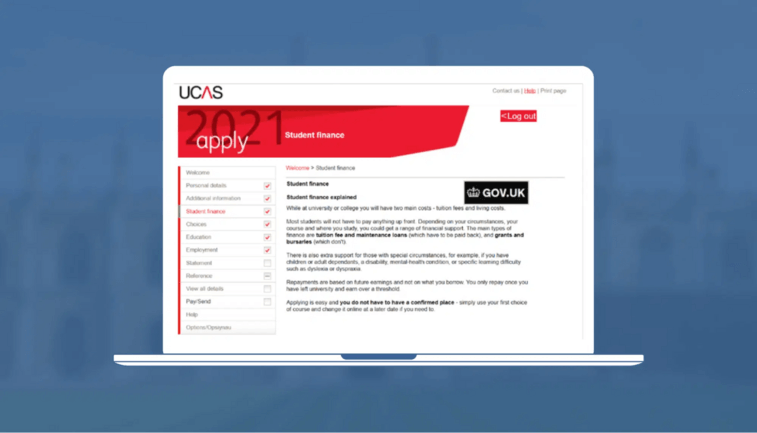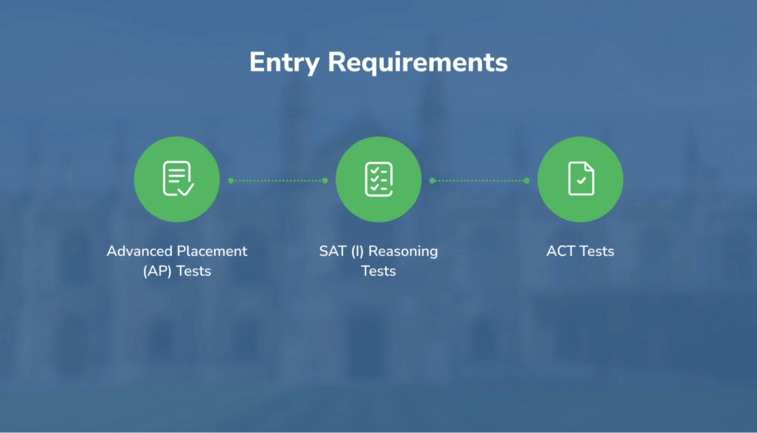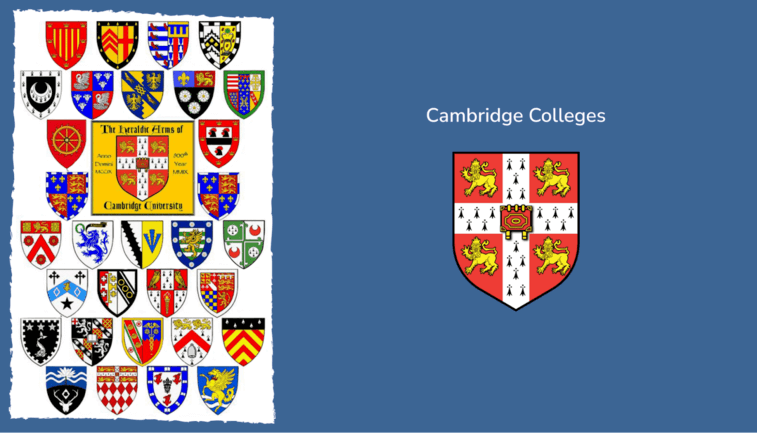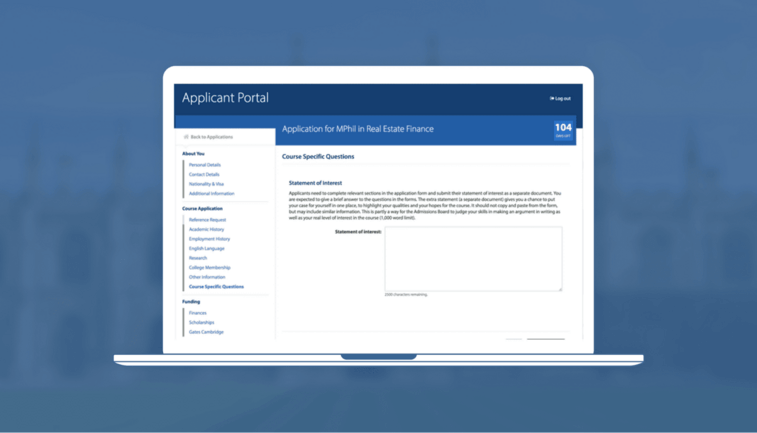Are you curious to know about the Cambridge University accceptace rate? If you’re an aspiring college student from America, chances are you know all about the Ivy League. It includes the country’s oldest and most prestigious higher education institutions.
But if you want to go even older (and equally as prestigious), you can do no better than the University of Cambridge.
Based in England, Cambridge is the second-oldest English-speaking university in the world. It has turned out hundreds of Nobel prize winners, heads of state, and pop culture icons — not to mention it’s renowned by all the league tables as one of the world’s top schools.
In this guide, I will explain everything you need to know about the University of Cambridge. I will explore how you can get into Cambridge as an undergrad or postgraduate student and examine the Cambridge application process in depth. I will also discuss the Cambridge University acceptance rate and walk you through Cambridge’s 31 colleges and how they work.
About the University of Cambridge: A Brief History
If you’re keen on attending an English university with a pedigree, you belong at the University of Cambridge. Founded in 1209, Cambridge University was granted a royal charter by King Henry III in 1231. If you care to do the math, Cambridge is the second-oldest university in the English-speaking world.
Because not all of the world’s ancient universities have survived the test of time, Cambridge is now the fourth-oldest surviving university on earth.
Over the last 800 years, Cambridge has churned out 121 Nobel laureates, 11 Fields Medalists, 7 Turing Award winners, and 14 prime ministers. But Cambridge isn’t all about academics, either. The school also has an excellent reputation in sports, with university alums having bagged 194 Olympic medals.
Today, Cambridge University is composed of almost 25,000 students. Those students are split between 31 colleges, which serve as social and academic hubs as a central part of student life.
Notable University of Cambridge Alumni
As one of the oldest universities on the planet, Cambridge University has been host to countless notable alums who have made a massive impact on the world. It comes as no surprise because the University of Cambridge is one of the best-ranking and highest-quality schools today.
There are plenty of instantly recognizable names in Hollywood and entertainment alone. Huge names like Sasha Baron Cohen, Thandie Newton, Hugh Laurie, Tilda Swinton, and John Oliver are all Cambridge alums. And if you were ever a fan of Monty Python, members John Cleese, Eric Idle, and Graham Chapman are products of the university as well.
Of course, beyond those who became famous for movies and television, there are literary geniuses like E.M. Forester and J.G. Ballard and visual artists like Quentin Blake, Sir Roy Yorke Caine, and Lord Antony Armstrong-Jones. Then you have plenty of politicians, including fourteen British prime ministers like William Lamb, Stanley Baldwin, and Robert Walpole.
Let’s not forget the brilliant minds of physicist Neils Bohr, philosopher Bertrand Russell, and astrophysicist Subrahmanyan Chandrasekhar. As previously mentioned, Cambridge University was home to more than 121 Nobel laureates, demonstrating the quality of the education you’d find there.
If athletics are your thing, you’d be interested to know that the University of Cambridge produced many Olympians like Stephanie Cook and Harold Abrahams.
Not all Cambridge alumni became famous, but for every notable alum, there are likely thousands more who have impacted the world in one way or another.
Ready to join their ranks? Read on as we discuss the Cambridge University acceptance rate, application requirements, and more. And read our guide on what acceptance really means for grad applicants.
What Is the Cambridge University Acceptance Rate?
Looking at newer information from the reports available from the Cambridge University admissions statistics, we can establish that in the 2021-2022 cycle, there were 22,795 undergraduate applications overall. Of those who applied, 4,260 got an offer of acceptance. Using these figures, we can compute that the Cambridge University acceptance rate was about 18.70% during that cycle.
We know the Cambridge acceptance rate in 2022 is 18.70% for undergraduate students, but can we figure out the Cambridge acceptance rate for 2023?
Unfortunately, the university has yet to release the data for the current cycle, which means we can’t figure out the undergraduate Cambridge acceptance rate for 2023 just yet.
But what is the Cambridge University acceptance rate for graduate school?
I managed to locate the latest report made available by the institution. This report contains the graduate school admissions statistics (master’s and doctorate levels) for the 2020 – 2021 admissions cycle. Unfortunately, it doesn’t appear that Cambridge has released the 2021 – 2022 cycle data yet.
That said, during the 2020/21 cycle, there was a total of 25,346 graduate-level applications. Out of those, 8,563 received offers of admission. Using both figures, I can compute that the grad school for Cambridge University’s acceptance rate is approximately 33.79%.
That said, it’s worth mentioning that not all graduate programs will be as easy to get into — some are far more competitive than others (particularly the ones with very limited slots open). If you’re using the grad school Cambridge University acceptance rate to gauge your chances of acceptance to your program of choice, you may not get an accurate picture.
The best way to estimate your chances of acceptance is to look into the specific program’s statistics. For example, if you’re looking for the Cambridge Medical School acceptance rate, you may find that the rates differ for the undergraduate and graduate programs.
Cambridge University Acceptance Rate for International Students
Now that we’ve figured out the total Cambridge University acceptance rate for undergraduate and graduate students, let’s discuss the acceptance rate for international students.
If we look at the admissions statistics from the 2020 to 2021 cycle, Cambridge received 7,038 international applications from various countries worldwide. Out of this number, 875 international students were offered admission. Thus, that year’s acceptance rate for international applicants was 12.4% — at least for undergraduate students.
What is the Cambridge University acceptance rate for US students?
Using the same admissions statistics report, we can see that during the 2020 cycle, 401 students applied from the United States. Of the 401, 41 received an offer of admission from the university. Therefore, the Cambridge University acceptance rate for international applicants from the US during that cycle was 10.2%.
How Much Does It Cost to Study at the University of Cambridge?
There is no question that Cambridge is one of the best universities in the world. As you might imagine, the University of Cambridge is costly because of its pedigree and the quality of education you’ll earn.
Pricing for local or home students is £9,250 for a year. However, rates may change in the coming years since the UK government determines rates at national schools (including the University of Cambridge). It’s worth noting that rates may increase further, given that the UK recently left the European Union.
For international students, the rates are different. Unfortunately, they’re much higher and depend on the degree you apply for. For example, a degree in Philosophy will cost international students £25,734. However, a Chemical Engineering or Computer Science degree will cost you £39,162 per year. Med school and veterinary science will set you back a whopping £67,194 each year.
These rates do not include your living expenses, which the University of Cambridge estimates to be around £14,600 for the 2024-2025 academic year.
It’s worth noting that undergraduate international students (and even Home students earning a second degree) also have to pay an additional annual fee to the Cambridge College they attend. This fee can vary — for example, you’ll have to pay £10,290 every year at Christ College, while at King’s College, that yearly fee is £10,887.
As an international student, you could look at a yearly investment of around £85,000 or more if you want to earn an undergraduate veterinary degree.
Grad school fees at the University of Cambridge vary from program to program. However, international students pay around £29,000 to £42,000 each year for tuition alone.
But before you balk at the price, you should know that financial aid opportunities are available (even for students from the US — though you may need to look for them yourself).
How Do Students Apply to Cambridge?
It’s worth mentioning that the University of Cambridge uses a holistic admissions process. This type of process considers all aspects of your application rather than just your academic track record. So, if you have a well-rounded application but a not-so-stellar academic track record, you may still have a good chance at acceptance!
But how exactly do you apply?
Before I discuss the Cambridge admissions requirements, let’s take a quick look at the application process.
The UCAS

When you apply to colleges and universities in the US, there are two application services you may need to go through: Common App and the Coalition App.
So, it is no surprise that the UK has its own version — the UCAS. The UCAS, or the Universities and Colleges Admissions Service, is a web-based platform you must apply through if you want to study in the United Kingdom. It was created in 1992 and has since made college applications more convenient.
If you’re looking to apply to Cambridge, here’s what completing the UCAS looks like:
- Register with UCAS – The first step to completing your UCAS is registering for an account on the platform. Once you have created your account, you must input your personal details before receiving your username. Then, you must create a secure password (and make sure you remember it!) and set your password recovery/security questions. If your high school provided a buzzword, you may also need to add that to your new UCAS account.
- Complete the form – Once you have created your account, you must answer all the mandatory questions within UCAS. You cannot skip any questions, though it’s worth mentioning that some are for UK-based applicants only. Other things to note include being asked to provide more personal details, your financial circumstances, how you intend to fund your studies abroad, and your current residency.
- Input your academic career details – When completing your UCAS, ensure you provide all the details of your past academic career. Mention if you went to college or university right after you graduated high school, even if you didn’t finish the program. Include any other qualifications you may have, even if some are still pending (i.e., exams or grades).
- Fill out your employment history – If you have had any part-time or full-time paid jobs, list them all in UCAS. The system allows you to put in as many as five jobs (and their related information). Don’t include any volunteer or unpaid experience in this section.
- Choose your courses – You can choose up to five courses in UCAS or start with one or two and choose the rest later. There’s no need to worry about selecting the courses in any particular order — UCAS has no preference.
Once you’ve gone through each of those steps, the next thing you’ll need to do is write your personal essay. Your essay must be 1,000 characters minimum. Note also that you cannot go over 47 lines or 4,000 characters (whichever comes first). Your essay’s focus must be to try to convince the admissions office of why you deserve to be accepted into Cambridge University. You may want to write your essay in a different program like Microsoft Word or Google Docs, as UCAS does not offer a native spellcheck tool.
Don’t forget to ask your mentors for letters of recommendation! Reference letters can come from your teachers, guidance counselor, coach, or other academic mentors. It’s a good idea to ask multiple people for their recommendations as some institutions require multiple in their application processes.
Upon completing all the steps above, the last thing to do is submit your completed UCAS and pay the application fee.
The University of Cambridge Admission Requirements

The admission requirements sought by Cambridge vary depending on your home country. For this article, I will focus on the University of Cambridge requirements for US students.
As an applicant from the United States, you’ll face the following requirements:
- Five or more AP Exam Scores (each must be a minimum score of 5 to count)
- High ACT or SAT results (32-36 cumulative for the ACT and 1460-1500 cumulative for the SAT)
Despite the standard requirements, Cambridge University actually takes a more individual approach. This means any program or college can modify its requirements at its discretion.
Cambridge University GPA Requirements for Undergraduate Applicants
If you’re a student from the UK applying to Cambridge, the grading system works differently than America’s grade point average (GPA) system. But let’s stick with GPA requirements for American applicants.
Regarding the GPA requirement for admissions, Cambridge is very competitive — but it’s important to note that there’s no formal requirement.
Cambridge will consider students with any GPA. But because it’s one of the best schools in the world, your chances of admission will be higher if you’ve got an outstanding GPA.
Some advice is floating around: the “unspoken” GPA requirement is about 3.7 on a 4.0 scale. However, because Cambridge uses a holistic admissions approach, even if you don’t have the best GPA, you may still have a chance — as long as your application is well-rounded and has a lot to offer.
Does Cambridge Require SAT/ACT Scores?
If you’re applying to the University of Cambridge as an American undergraduate, Cambridge requires you to have at least five AP Test scores with a grade of 5.
And yes, you’ll also be expected to submit either SAT or ACT scores.
Cambridge expects a score of at least 750 in each component to give a combined SAT score of 1,500 for applicants to its science or economics courses.
But if you’re applying for other courses, the admissions department will want a 730 in the evidence-based reading and writing section and a 730 in math to give a combined SAT score of at least 1,460.
If you choose the ACT, you’ll need a composite ACT score of at least 32 for arts and humanities courses. If you’re applying for a science-related degree, you’ll need an ACT score of at least 33.
How to Apply to Cambridge University as a Postgraduate Student
If you want to be eligible to apply to Cambridge as a graduate student, you’ll need to have a minimum of an upper second-class degree from a UK university or an equivalent from an overseas school.

From there, the application process is pretty simple.
You’ve got to submit your application through the university’s online Applicant Portal. First, select your course, and click the ‘Apply’ button. From there, you’ll be guided to the online postgraduate application.
To complete that application, you must include various supporting documents and references alongside an application fee. After an admissions officer processes your application, you may be invited to take part in an interview.
Prospective students apply to Cambridge’s central Graduate Admissions Office and then pick two college preferences on their application. If accepted, your first college choice will automatically get your application. If you don’t pick a college, you’ll be assigned one.
The exception to the rule is if you’re applying for a PGCE, MBA, or Clinical Medicine course. Then, you must apply to the relevant department instead.
Postgraduate Application Requirements
If you’d like to apply to the University of Cambridge as a postgraduate student, there are 31 colleges affiliated with it.

All Cambridge students become members of a college — and it’s necessary to be a member so that you can be registered and enrolled as a master’s or Ph.D. student.
It’s difficult to pinpoint the exact application requirements for each program, as they may require different things. One postgraduate program may have additional Cambridge GPA requirements than others. However, you can expect to submit the standard requirements such as your transcripts, employment history, letters of recommendation, personal statement, and so on.
The best way to know the requirements for your program is to find the relevant information from the specific colleges in question. The 31 Cambridge colleges are below.
The University of Cambridge Colleges
Christ’s College
Christ’s College was founded in 1505 by Lady Margaret Beaufort, the mother of King Henry VII. College alums include poets John Milton and Charles Darwin.
The college is composed of 85 fellows, 395 undergraduates, 160 Ph.D. students, and 115 master’s students.
Christ’s admits grad students from all courses on both a part-time and full-time basis, but the school is particularly keen to admit Ph.D. students. Most years, the college admits about 100 new postgraduates — making it a little smaller than the average Cambridge college.
Churchill College
Churchill College was formed in 1960 as the national and Commonwealth memorial to former Prime Minister Sir Winston Churchill.
The college comprises 897 undergraduates, 390 postgrads, 256 fellows, and 160 staff. Churchill College is particularly well-known for its beautiful 42-acre parkland campus.
Clare College
Clare College was founded in 1326, and it was the first college between Cambridge and Oxford to combine master’s students, fellows, and scholars into a single community.
Today, Clare College comprises 120 fellows, 482 undergrads, 137 Ph.D. students, and 266 master’s students.
Clare Hall
Clare Hall was founded in 1966 as a more modern offshoot of Clare College. Clare Hall is well-known amongst the Cambridge colleges because it’s one of just two colleges open only to grad school students.
With around 255 postgraduate students, Clare Hall is Cambridge’s smallest college.
Corpus Christi College
Corpus Christi College was formed in 1352 due to the Black Death that killed many of the country’s clergy. It was the sixth college to join Cambridge.
Today, Corpus Christi comprises 60 fellows, 277 undergraduates, 212 Ph.D. and other postgraduate students.
Darwin College
Darwin College was founded in 1964 as Cambridge University’s first-ever graduate-only college. After Clare Hall was formed two years later, Darwin became one of two postgrad-only colleges.
It was also the first Cambridge College to admit both men and women.
Darwin College comprises 71 fellows, 750 Ph.D. and other postgrad students.
Downing College
Downing College was founded in 1800 at the request of Sir George Downing — a famous English statesman and one of nine graduates of Harvard’s first-ever graduating class of 1642.
Downing College is composed of 55 fellows, 439 undergrads, 260 doctoral students, and 530 other postgrads.
Emmanuel College
Emmanuel College was created in 1584 by Sir Walter Mildmay, Chancellor of the Exchequer to Elizabeth I.
It was built on the site of a Dominican priory. Today, the college comprises approximately 94 fellows, 500 undergraduates, 200 doctoral students, and 128 master’s students.
Fitzwilliam College
Fitzwilliam College was developed in 1869 specifically to help students who couldn’t afford tuition fees.
Today, the college comprises 56 fellows, 450 undergraduates, 137 Ph.D. students, and 300 grad school students.
Girton College
Girton College was founded in 1869 by Emily Davies and Barbara Bodichon. It’s important because it was Britain’s first-ever residential college for women.
Girton College is now home to 500 undergrads, 128 fellows, 165 Ph.D. candidates, and 116 other postgraduates.
Gonville & Caius College
Edmund Gonville founded Gonville & Caius College in 1348. but it was then refounded in 1557 by John Caius.
Gonville & Caius College is one of Cambridge’s most prominent colleges. It has 110 fellows, 550 undergrads, 280 Ph.D. students, and 70 other postgrads.
Unlike most Cambridge colleges, Gonville & Caius College doesn’t accept part-time students.
Homerton College
Homerton College was founded on Homerton Street, London, in 1768 by a group of Protestant dissenters.
In 1894, the college moved to Cambridge. Today, it comprises approximately 61 fellows, 618 undergraduates, 175 doctoral students, and 746 master’s students.
Hughes Hall
Hughes Hall was initially founded for postgraduates only. It now accepts mature undergraduates — any undergrad over 21 years old.
Hughes Hall is home to 85 fellows, 175 mature undergrads, 260 Ph.D. students, and 300 grad students.
Jesus College
Jesus College was founded in 1496, and its full name is “the College of the Blessed Virgin Mary, Saint John the Evangelist and the glorious Virgin Saint Radegund, near Cambridge.” Its nickname comes from the college chapel.
Jesus College contains 120 fellows, 580 undergraduates, 300 Ph.D. students, and 180 master’s students.
King’s College
King Henry VI founded King’s College in 1441. The college gets its name from King’s Chapel, one of Cambridge’s most iconic buildings.
King’s takes students from all subjects, including Veterinary Science, Land Economy, and Education.
It comprises 134 fellows, 463 undergraduates, 326 Ph.D. students, and other postgraduate students.
Lucy Cavendish College
Lucy Cavendish was founded in 1965 as a college for women only. Since October 2021, the college has agreed to admit men and have an equal gender balance.
Lucy Cavendish currently houses approximately 65 fellows, 350 undergrads, 136 Ph.D. students, and 450 other postgraduates.
Magdalene College
Magdalene College was founded in 1428. Every year, it admits about 100 undergrads and 80 postgrads across all subjects.
Magdalene College contains approximately 113 fellows, 383 undergraduates, 123 doctorate students, and 199 other postgrads.
Murray Edwards College
Founded as “New Hall” in 1954, Murray Edwards College is one of Cambridge’s women-only colleges.
Murray Edwards College comprises approximately 84 fellows, 397 undergraduates, and 172 Ph.D. and other postgraduate students.
Newnham College
Newnham College was founded as a women’s college in 1871 — when women technically weren’t allowed to attend the University of Cambridge. One of its co-founders was Dame Millicent Garrett Fawcett, a famous women’s suffragette.
Today, the college contains 70 fellows, 400 undergraduates, and 300 postgrads.
Pembroke College
Pembroke was founded in 1347 — making it Cambridge’s oldest college to survive on its original site with an unbroken constitution.
Pembroke College is home to 88 fellows, 444 undergraduates, 185 Ph.D. students, and 90 master’s students.
Peterhouse Queens’ College
Founded in 1284, Peterhouse Queens’ College is the oldest college at Cambridge. It was founded by Hugo de Balsham, Bishop of Ely.
It’s the smallest college in terms of fellows and students and offers several fully-funded postgraduate studentships for MPhil and Ph.D. students from overseas.
The college has 45 fellows, 290 undergraduates, and 70 postgrads.
Queens’ College
Queens’ College was founded in 1448 by Margaret of Anjou. It has some of the most iconic and recognizable buildings on campus.
Queens’ houses 84 fellows, 520 undergraduates, 243 Ph.D. students, and 323 other postgraduates.
Robinson College
Founded in 1981, Robinson is one of the newest colleges at Cambridge. It was created with a donation from entrepreneur Sir David Robinson.
Today, the college has approximately 100 fellows, 428 undergraduates, 180 Ph.D. students, and 300 other postgrads.
Selwyn College
Selwyn College was opened in 1882 and took its name from George Augustus Selwyn, the first Bishop of New Zealand.
The college has approximately 64 fellows, 370 undergraduates, 141 doctorate students, and 166 grad students.
Sidney Sussex College
Sidney Sussex was founded in 1596 by Lady Frances Sidney, the Countess of Sussex.
It’s one of Cambridge’s smaller colleges and traditionally excels in math, history, engineering, and law.
Sidney Sussex is home to 67 fellows, 355 undergraduates, and 275 Ph.D. and master’s students.
St Catharine’s College
St Catharine’s College was founded in 1473. This medium-sized college caters to all subjects, but undergrads weren’t allowed in until the 16th century. It’s more commonly known on campus as “Catz.”
St Catharine’s contains 63 fellows, 493 undergraduates, and 296 postgraduates.
St Edmund’s College
St Edmund’s was founded in 1896, making it the second-oldest of the four Cambridge colleges for mature students.
Most St Edmund’s students are pursuing a higher degree like a Ph.D., MPhil, or LLM.
The college comprises approximately 89 fellows, 188 mature undergraduates, and 528 Ph.D. and other postgraduate students.
St John’s College
St John’s was founded in 1511 and is one of Cambridge’s most prominent colleges.
The college comprises 156 fellows, 637 undergraduates, 368 doctoral students, and 77 other postgrads.
It’s important to note that St John’s College doesn’t allow applications from existing members of other Cambridge Colleges.
Trinity College
Trinity College was founded in 1546 by King Henry VIII after he combined two other existing colleges with seven hostels.
Today, it’s one of the largest colleges at Cambridge. It has the most considerable financial endowment of any college at either Cambridge or Oxford.
It consists of 180 fellows, 730 undergraduates, and 350 postgrads.
Trinity Hall
Trinity Hall was founded in 1350 by Bishop Bateman for the study of law — but it now accepts students from all subjects.
The college comprises 71 fellows, 401 undergraduates, 149 Ph.D. students, and 75 postgrads.
Wolfson College
Wolfson College was founded in 1965 as a postgraduate-only college. But it now allows mature undergraduates.
The college has 106 fellows, 150 mature undergrads, 297 Ph.D. students, and 240 postgrads.
Frequently Asked Questions
Is it hard to get into Cambridge University?
Knowing that Cambridge is one of the world’s oldest and most prestigious universities, it’s easy to feel overwhelmed and intimidated by the idea of trying to get in. However, although Cambridge admissions are highly competitive, the school is not as challenging to get into as other similarly prestigious universities like Harvard. Look at Harvard’s, Princeton’s, and Yale’s acceptance rates in 2022 — 4.6%, 5.5%, and 6.3%, respectively. On the other hand, the Cambridge acceptance rate this year is 18.70%.
Do you need straight As to get into Cambridge?
How hard is it to get into Cambridge, exactly? The Cambridge University acceptance rate varies from country to country. You certainly need high grades to get in, considering the unspoken GPA requirement is 3.7 minimum on a 4.0 scale. For US applicants, you’ll need a minimum of five grade 5 AP scores and passing (high) marks on your transcript. You’ll also need high standardized testing scores. That doesn’t mean all your grades must be As — as long as you meet all the other requirements.
Is Cambridge similar to Harvard?
In many ways, yes. Harvard and Cambridge are both highly prestigious old universities that produce top-notch graduates. But if we go by the current QS world rankings, Cambridge University currently ranks at two, while Harvard is at five. That doesn’t necessarily mean that Harvard is any worse than Cambridge — there’s no doubt the quality of education in both institutions is superb.
Does Cambridge give credit for AP exams?
When you apply to Cambridge from the USA, you are required to have five AP exam scores. Otherwise, the institution will not consider your application at all. However, it’s also not enough to have five scores — they must each be a score of five, as those are the only scores Cambridge will credit. You can take AP exams without taking the respective Advanced Placement courses.
Conclusion
The Cambridge University acceptance rate is high, challenging to get into, and rightfully so. This institution currently sits at the rank of #2 best University in the world, so it only makes sense that it is the dream school for many. If it’s your dream school, too, don’t let the acceptance rate of Cambridge intimidate you.
Despite the University of Cambridge’s pedigree, it’s not the most challenging school to get into — in 2020/21, the undergraduate acceptance rate was 18.70%. Compare that to Harvard’s, which was around 5% during the same cycle.
All that to say, don’t worry too much about the University of Cambridge’s acceptance rate. As long as you meet the admission requirements, go ahead and give it a shot!
Unsure of whether you want to earn your PhD locally or overseas? Check out the top 20 best PhD programs in the US.
Chriselle has been a passionate professional content writer for over 10 years. She writes educational content for The Grad Cafe, Productivity Spot, The College Monk, and other digital publications. When she isn't busy writing, she spends her time streaming video games and learning new skills.












Hi Chriselle,
Nice article, thank you!
I must just point out that you say the acceptance rate for Harvard is lower than that for Cambridge (and therefore harder to get into), but this does not indicate that Harvard is more difficult to get into, only that more students apply to Harvard and thus give it an acceptance rate of around 5% compared to Cambridge’s rate of around 18%.
The acceptance rate is surely the percentage of students that apply and are accepted into that university out of the total number that apply. Harvard would, of course, want to fill all of their places, so if they only accept 4 out of every 100 that apply it means that a huge number of students apply to Harvard compared to Cambridge. This could be because students are more intimated by the thought of applying to Cambridge or that as the population of the United States is 330 million, many more in actual numbers will apply to them, compared to the population of the UK which is around 67 million. Of course the number of foreign students applying to each makes a huge difference but maybe more foreign students apply to Harvard…that would take some further research.
I just thought I would make this point, because I am a little biased as my daughter is currently studying at Cambridge! :))
Thanks again for all your research.
Kiran